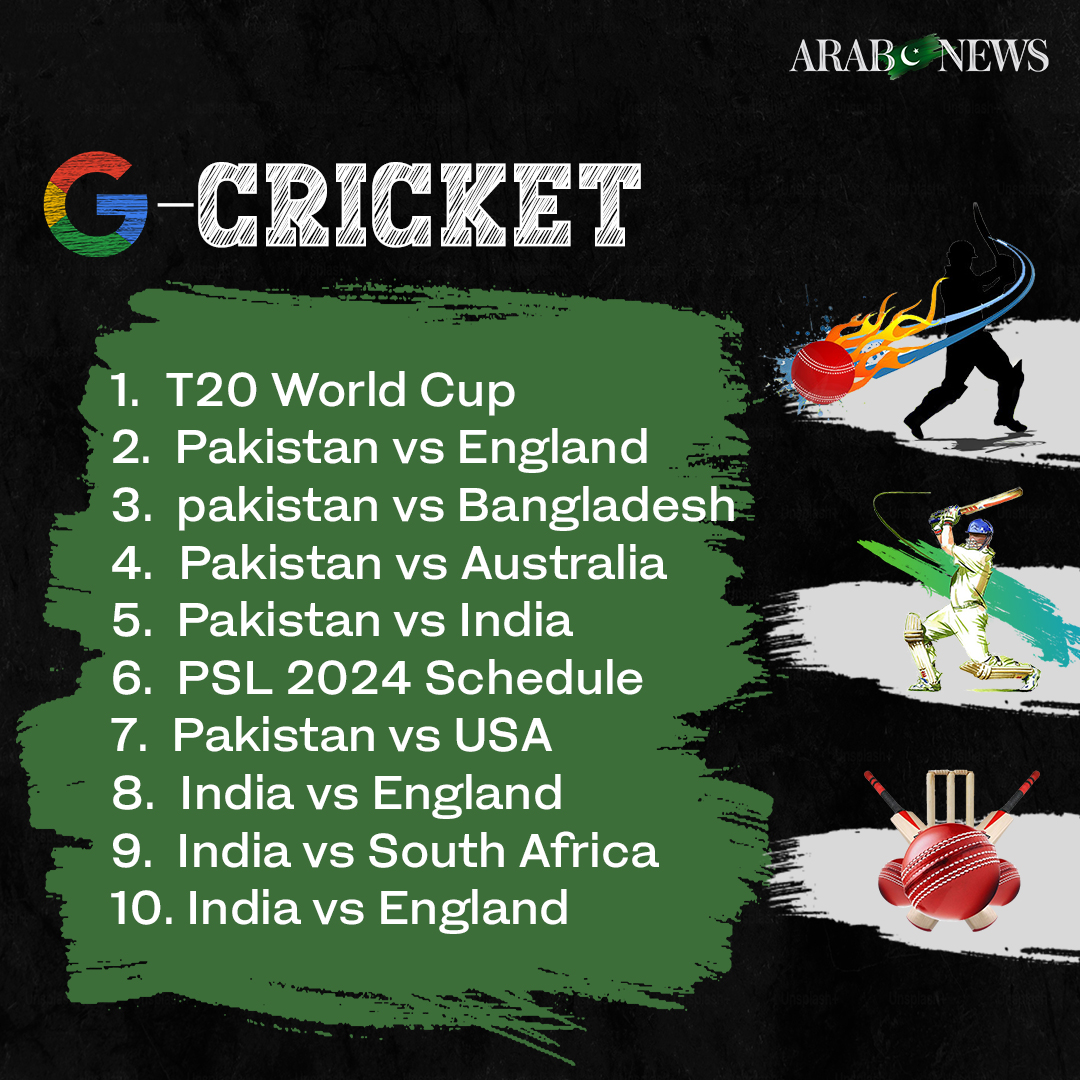KARACHI: Google this week released its annual overview of the year’s most-searched topics, with sports, entertainment, food, and technology driving Pakistan’s digital interests, the global technology giant said.
The Google list, often called the “Year in Search” or “Google’s Year in Review,” showcases the most popular searches, trends, and topics of the year, offering a glimpse into what captured the interest of people globally.
“Google’s Year in Search 2024 released a captivating narrative of Pakistan’s digital landscape, one where sports, entertainment, food and technology kept the users hooked to Google, showcasing the nation’s content preferences,” Google said in a press release.

The Pakistan year-end lists for this year comprise the six categories of cricket, people, movies and drama, how to, recipes and tech.
The cricket category was dominated by searches on the International Cricket Council Twenty20 World Cup, followed by the Pakistan Super League 2024 schedule and queries regarding players like Shoaib Malik.

At the top of the people’s list was Iranian photographer Abbas Attar, followed by Etel Adnan, the Lebanese-American poet and essayist, and Pakistani Olympic gold medalist Arshad Nadeem.

“Entertainment also held a prominent place in Pakistan’s digital landscape, with the enduring appeal of Pakistani dramas evident in searches for shows like Ishq Murshid and Kabhi Main Kabhi Tum,” Google said.

Caption
“Bollywood films like Animal, Dunki, Bhool Bhulaiyaa 3, and Stree 2 also generated buzz, along with reality show Bigg Boss and the eagerly awaited Mirzapur Season 3.”
Pakistanis also explored a variety of culinary delights on Google with recipe searches ranging from banana bread, creamy pasta, egg noodles and peach iced tea as well as local dishes like malpura pancakes and tawa kaleji, which is fried goat liver.

In the tech sector, the increasing interest in Artificial Intelligence tools was evident through searches for Gemini and Remaker AI, while the demand to stay connected was reflected in queries for the latest smartphones including models from Infinix, Redmi, Vivo, and Apple, Google said.

The statement said “how to” searches revealed queries about polling stations during a year in which Pakistan held general elections, and tips on how to make flowers last longer. Parental advice was also a part of the top searches.

Google Country Director of Pakistan Farhan Qureshi said this year’s searches revealed that Pakistan was deeply rooted in traditions while also embracing the possibilities of the digital age.
“From the cricket pitch to the kitchen, from the silver screen to the search bar, Pakistanis are using Google to explore their passions, connect with their culture, and shape their future,” he said.
“AI has been integral to reimagining what Search can do, and we’re looking forward to expanding on our capabilities to help Pakistanis discover more of the web and the world around them.”
















